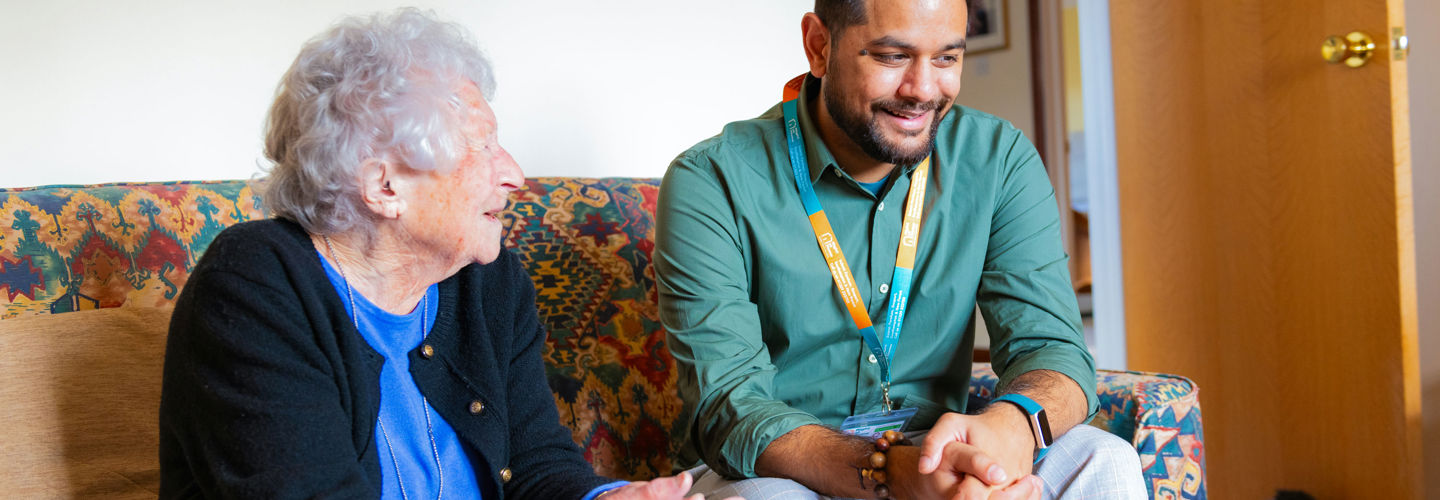
Everyday Heroes: Celebrating Caregivers
Discover how domiciliary caregivers form the backbone of UK community health, providing essential support that enables independent living whilst building meaningful relationships with clients and families
Published: 04/08/2025
In the United Kingdom, the unsung workforce of domiciliary caregivers forms the backbone of community health and wellbeing. Often moving quietly from home to home, these professionals bring daily support and companionship to individuals who wish to live independently. Domiciliary caregivers are responsible for everything from personal care, medication assistance, and meal preparation to simply providing a listening ear. Yet, whilst their work may be largely behind the scenes, its impact is profound, enduring, and deeply valued by those they support.
Domiciliary care, sometimes known as home care, enables people—often older adults, those with disabilities, or individuals with chronic illnesses—to remain in familiar surroundings. This model of support is far more than a practical solution; it represents a cornerstone of dignity, autonomy, and personal connection. In many cases, it makes the difference between someone being able to stay at home or having to move into residential care. The need for such care will only increase as the UK population ages and as more families choose personalised, home-based solutions.
The everyday heroism of caregivers emerges not only through physical assistance but also through the emotional bonds they form with their clients. Caregivers are often the first to notice subtle changes in a person's health or mood. They serve as advocates, confidants, and a vital link between vulnerable individuals and health services. Families, too, find reassurance in the dependable presence of a caregiver who takes time to listen, understand, and respond with compassion.
Caring in the home presents varied and sometimes complex challenges. Caregivers must be patient, adaptable, and resourceful—navigating different personalities, health conditions, and household routines whilst balancing professional boundaries with genuine warmth. They are regularly called upon to manage delicate situations, from supporting those with dementia to providing end-of-life care, always with respect and consideration for their clients' dignity.
The true measure of a caregiver's value lies in the small, everyday details. It might be the way tea is prepared just as someone likes it, ensuring a favourite programme is ready at the right time, or offering a reassuring word on a difficult day. These gestures combine to create a quality of care that transcends routine and transforms lives. The sense of continuity, trust, and mutual respect is difficult to quantify but lies at the heart of what makes domiciliary care so highly valued.
From a broader perspective, recognising caregivers as "everyday heroes" is essential for the future of social care in the UK. Without their crucial work, many would face isolation, declining health, or premature moves into residential care. The consistent care provided at home helps prevent hospital admissions, supports faster recovery, and keeps families together for longer. As health and care needs increase nationally, fostering a supportive environment for caregivers becomes not merely worthwhile but absolutely essential.
Families benefiting from domiciliary support regularly express profound gratitude for the impact caregivers make. The difference extends far beyond relieving practical burdens; it is about knowing their loved one is in trusted, capable hands—someone who genuinely cares, recognises changes, and possesses the skills to respond appropriately. These relationships often develop into trusted partnerships, built on mutual understanding and respect.
Celebrating caregivers meaningfully requires ensuring their own wellbeing is prioritised too. The demands of caring for others are significant, both physically and emotionally. Carers face higher risks of burnout, compassion fatigue, and physical strain. Organisations must therefore remain vigilant in providing adequate rest, emotional support, and clear channels for communication and feedback. Investment in training, advancement opportunities, and recognition are central to creating a sustainable, satisfied care workforce.
Fair pay, flexible hours, and manageable workloads are fundamental to retaining the finest people and acknowledging their value. Recognition—whether through formal awards, peer appreciation, or simple words of thanks—should become routine, reflecting the scale of difference caregivers make every day.
We at Right at Home Enfield stand out in our commitment to fostering a positive, supportive environment for our team of caregivers. Recognising that the best possible care for clients begins with happy, valued staff, we implement a range of employee-friendly measures. These include flexible working options, enabling our staff to balance personal commitments with their professional roles, and comprehensive workplace wellbeing resources that support mental and physical health. Regular, high-quality training keeps skills current and empowers our caregivers to handle emerging challenges with confidence.
Opportunities for mentorship and open forums enable our staff to learn from each other and voice their ideas or concerns. Staff awards, appreciation events, and frequent positive feedback serve to highlight outstanding contributions and offer encouragement to all. These initiatives result not only in better staff morale and retention but also in consistently high standards of care for every client. By taking these practical steps, we at Right at Home Enfield ensure our caregivers are not only celebrated during special events, but supported in their vital work every single day; a true reflection of the everyday heroism that underpins quality domiciliary care across the UK.
